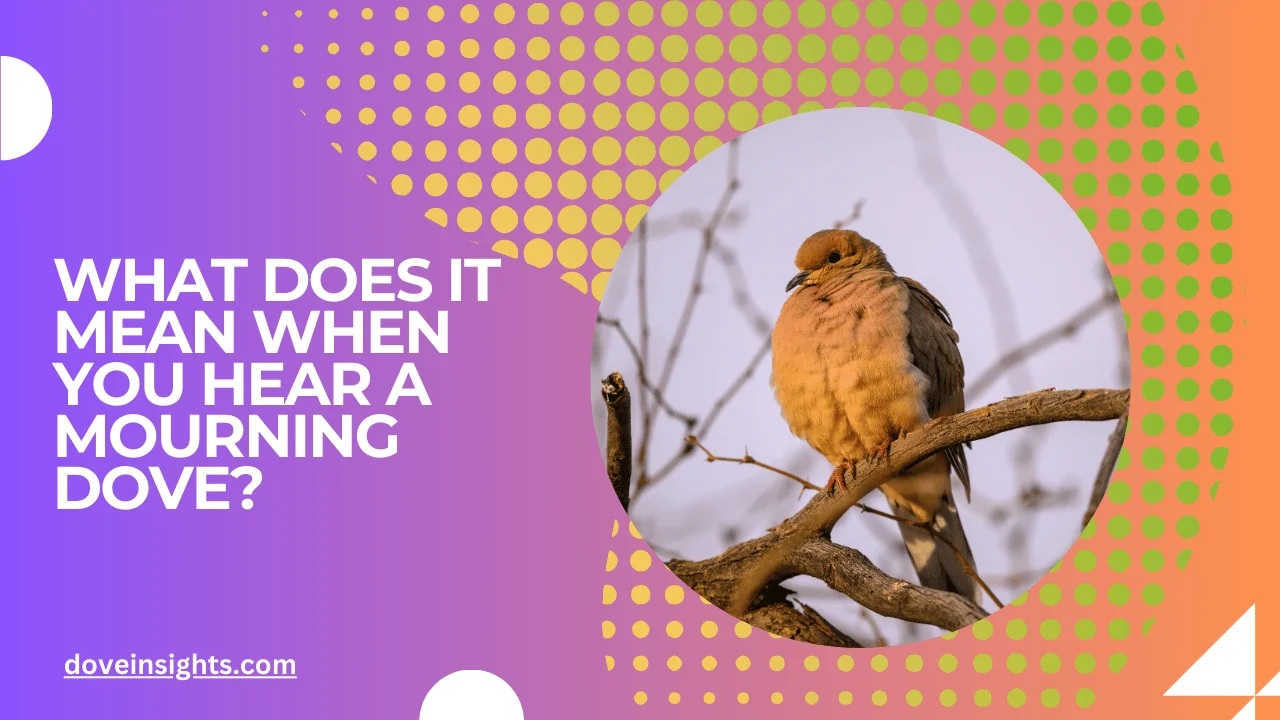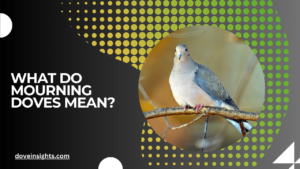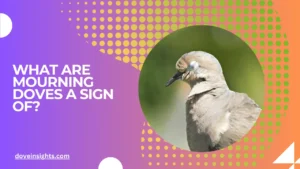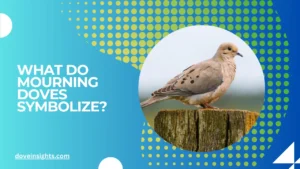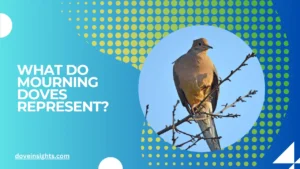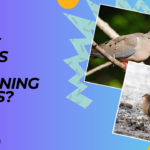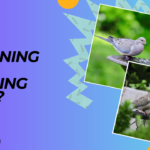The soft, melodic coo of a mourning dove often feels like nature’s lullaby, a soothing presence in the midst of a noisy world.
Yet, for centuries, people have ascribed deeper meanings to this familiar birdcall, seeing it as more than just a sound. Some view it as a symbol of peace, others as a message of loss, and for many, it holds a spiritual or emotional resonance that connects them to nature or loved ones.
But what does it truly mean when you hear a mourning dove?
In mythology, culture, and daily life, the mourning dove’s call carries a weight of significance.
From representing hope in biblical texts to serving as a gentle reminder of life’s fleeting nature, this bird’s voice has left an indelible mark on human consciousness.
Beyond symbolism, their calls serve practical purposes in the animal kingdom, offering insights into their behavior and role in the ecosystem.
This article delves into the science, culture, and personal interpretations of hearing a mourning dove.
Whether you’re curious about their biological purpose, intrigued by their spiritual symbolism, or simply want to understand why they coo, this post will unravel the many layers of meaning behind the mourning dove’s song.
Contents
The Science of Mourning Dove Calls
The cooing of mourning doves is both melodic and purposeful, playing a critical role in their survival and social interactions. These calls are primarily used by male doves during the mating season to attract a mate and establish territory. The rhythmic, low-pitched coo is a testament to their unique communication abilities.
This sound is produced through a specialized vocal organ known as the syrinx, located at the base of their trachea. Unlike humans who use vocal cords, birds rely on this structure to create their characteristic calls. The anatomy of the syrinx allows for precise control over pitch and tone, giving the mourning dove its soft, mournful song that sets it apart from other bird species.
Cultural and Historical Significance
Mourning doves have deep cultural and historical roots, symbolizing peace, love, and hope in many societies. In Christianity, the dove represents the Holy Spirit and divine guidance, often appearing in religious texts and iconography. Native American traditions view the mourning dove’s call as a spiritual message, a sign of transition, or a connection with ancestors.
Throughout art and literature, mourning doves have inspired poets and painters alike. Their gentle presence and distinctive call evoke feelings of serenity and reflection, making them a timeless symbol in creative works. These cultural connections enrich our appreciation of this unassuming bird.
Symbolism and Personal Interpretations
For many, the mourning dove’s coo is a symbol of peace and mourning. The gentle sound often evokes emotions of comfort and hope, particularly for those grieving a loss. Some people interpret their calls as messages from deceased loved ones, believing that the dove acts as a spiritual intermediary.
The symbolic meaning of mourning doves can vary across cultures. In some regions, they are seen as harbingers of new beginnings, while in others, their coos are reminders of life’s fragility and the need for reflection. These personal and cultural interpretations add layers of meaning to their simple song.
Mourning Doves in the Ecosystem
Beyond their symbolic significance, mourning doves play an essential role in their ecosystem. As seed dispersers, they help maintain plant diversity and contribute to healthy ecosystems. Their diet consists of seeds and grains, and their foraging habits assist in the natural cycle of growth and regeneration.
Their vocalizations are also vital to their species’ survival, serving as a means of territory establishment and mate attraction. Human interactions with mourning doves, whether in urban parks or rural gardens, underscore their adaptability and the importance of protecting their habitats.
Why Hearing a Mourning Dove Matters
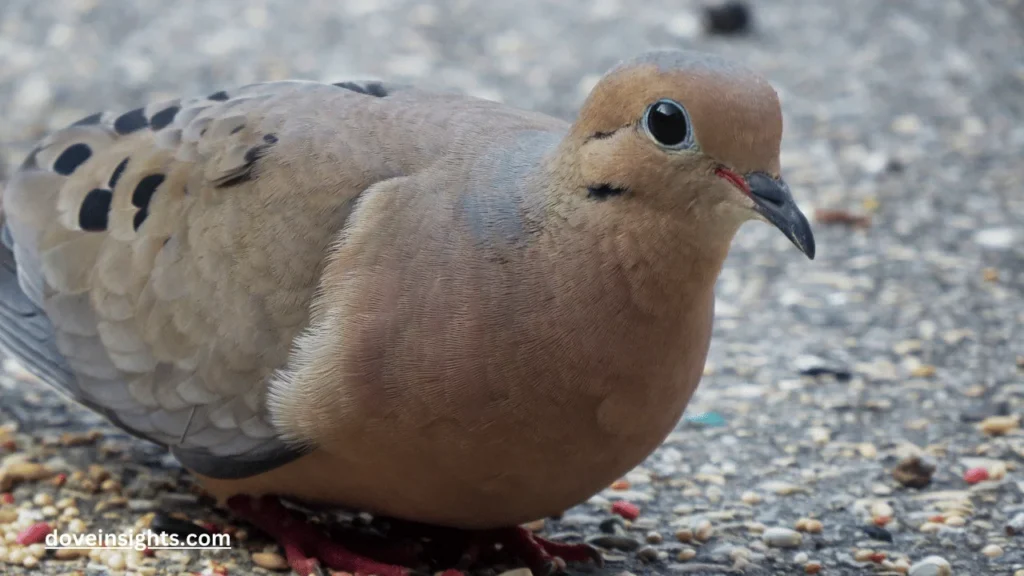
Hearing a mourning dove’s call is often a reminder of the health of the environment. These birds thrive in spaces where ecosystems are balanced, signaling a harmony between flora and fauna. Their gentle cooing creates a sense of connection between humans and nature, fostering a deeper appreciation for the world around us.
In a fast-paced world, the sound of a mourning dove can encourage mindfulness and reflection. It reminds us to pause, take in our surroundings, and value the shared spaces we inhabit with wildlife. By understanding their calls, we not only appreciate their beauty but also recognize the ecological and emotional resonance they bring to our lives.
Conclusion
The mournful coo of the mourning dove is more than just a sound—it’s a gateway to understanding the natural world, cultural history, and personal meaning.
From the biological mechanics behind their calls to their role in mythology and ecology, mourning doves leave an indelible mark on the environments they inhabit and the humans who hear them.
As we’ve explored, these gentle birds symbolize peace, love, and reflection, weaving a story of harmony between species and their habitats.
Whether their call serves as a spiritual reminder or a sign of environmental health, mourning doves encourage us to cherish the interconnectedness of all life. Let their song inspire mindfulness and a commitment to preserving the natural spaces where these birds—and we—thrive.
FAQ’s
Why do mourning doves coo?
Mourning doves coo to attract mates, establish territories, and communicate with other doves, especially during the breeding season.
What is unique about a mourning dove’s call?
Their call is soft, rhythmic, and low-pitched, produced through a vocal organ called the syrinx, which allows for precise tonal control.
Do mourning doves coo at night?
While they are mostly diurnal, mourning doves may occasionally coo at night due to environmental stimuli or disturbances.
What does a mourning dove symbolize?
Mourning doves often symbolize peace, love, and mourning. They are also seen as spiritual messengers in various cultures.
How do mourning doves contribute to their ecosystem?
They act as seed dispersers and are an important food source for predators, playing a vital role in maintaining ecological balance.
Can hearing a mourning dove’s call indicate environmental health?
Yes, their presence and vocalizations often reflect a healthy and balanced ecosystem.

